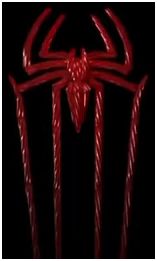Interview: Lauren Greenfield of “The Queen of Versailles”
Posted on July 12, 2012 at 8:00 am
Lauren Greenfield is the director of the new documentary, The Queen of Versailles, the story of Jackie Siegel and her husband David, a monumentally wealthy couple who were building the largest residence in the United States, a 90,000 square foot mansion with ten kitchens, a baseball field, a spa, and two tennis courts. While Greenfield was filming, the financial crisis hit the Siegels and like millions of other Americans, they were suddenly and unexpectedly at risk of losing their home. It is just that their home was modeled on the palace that Marie Antoinette and Louis XVI lived in before the French revolution. Greenfield spoke to me as she was in town for the Silverdocs film festival and was preparing to show her film to the Secretary of the Department of Housing and Urban Development. David Seigel’s fortune comes from the timeshare company Westgate.
http://www.youtube.com/watch?v=bqDreqlPe98Where are the Siegels now?
Jackie was here at Silverdocs last night and she’s on a road trip with her kids, a vacation road-trip. I asked if it was a downsized vacation and she said “kind of,” but she stopped at Saks Fifth Avenue and went to Chanel and Westgate is continuing to make sales, and David says it’s very profitable. At the end of the film Richard, his son, says, “If he gives up the keys to Vegas, the lenders will continue to lend and they can go back to making money, and he can go back to his life as it was.” Some of that has happened, the lenders have continued to land and so the rest of the resorts are making money and they are still in debt (I think they have estimated a few years to get out of debt). And David would like to start construction on the house again.
He’s such a good businessman in so many ways and yet he was very foolish about not segregating his own assets from the company’s and that put him under a lot of financial pressure he’d really didn’t need to be under.
Vegas was such a gamble and in a way such an irrational gamble, I think was part business and part emotion because he was also thinking about the $2 billion he was going to make there and was kind of holding onto that as his crowning achievement. He also had the Westgate name and lights brighter than anything else on the strip, perfect spot on the strip, and then the legacy of Vegas with his parents and then perhaps the other legacy of their gambling which ultimately kind of brings that dream down for him.
How do you as a film maker state close to a family like that over such a long period of time and yet maintain some objectivity? It must’ve been very difficult, particularly as you observe the way they behave with each other.
In a way that’s my modus operandi. I feel like I have that perspective in all my work and in my photography, too. I do get really close to the subjects, but I also am always kind of looking at things from a sociological perspective. I think with Jackie and David’s story – I could feel a lot of compassion for them and I really liked Jackie a lot and respected David. The original premise of the film I really saw it as allegory that represented what happened to so many Americans. So, I saw their virtues and their flaws as speaking to our virtues and flaws as Americans, too, and so I guess I solve them as individuals and also sort of symbolic. I am able to kind of get close to people and be there on a day-to-day basis but also step back and look at “what does it mean, what does it mean for us in the context of the bigger picture, eventually the allegorical picture?” With that said, some of that comes with living with the footage. I filmed over a three-year period and I cut over a six-month period in that process would show mentors and other editors and I went to the Sundance lab with the film, so I also had a chance to kind of step back, how do people react what do they get what do they not get? But in terms of my view I was always looking at them as both incredibly fascinating characters, incredibly fascinating story and also kind of a symbolic one; that in a way is a viewpoint in all my work.
I just don’t take on being an interventionist in the work. I feel like in a way this is a social issue film, it’s about the housing crisis, it’s about our culture of consumerism. I feel like it’s a morality tale that also speaks to the consequences of access, but I would never take it upon myself to intervene. I try not to judge, too, and I think you can see that in the perspective of the film that I am kind of there, and let’s step back and see what it means.
Tell me about the decision to include in the film the incredibly poignant commentary from Virginia the nanny about her own situation.
The minor characters are always important to me, and even before when they were building the house, when I thought this was going to be about the building of the house, I was interested in the upstairs downstairs quality of the house and the kind of different cultures, different classes all living as a kind of unusual extended family and with Virginia and with Cliff and with Jonquil , I was really interested in showing other experiences of the American dream, both their similarities and their differences. So, Virginia has a tragic story about not seeing her kids for over 20 years now. And yet, I think her story also speaks to so many people stories about coming to America to find fortune and Virginia is a salaried employee, her two other colleagues have gone back to the Philippines and yet Virginia chooses to send all her money home and not go there herself. I think she would like to, she was actually saving for it but her mother died and there was a funeral to pay for. So, these are really hard choices. I saw a parallel, too, between Jackie and Virginia because money was the reason both of them were not doing direct parenting. So, I guess I saw a lot of relationships and when Virginia said her dream was to build a concrete house in the Philippines, that was really poignant to me, and I also got the sense that she thought it was hard to go back if you didn’t have something to show for it – in other words, she could afford the ticket, but she couldn’t afford to go and give everybody money, and she didn’t want to go back without that. Again, I think that story speaks to the virtues and flaws of the American dream and the importance of money. She works seven days a week she has another job on the weekends at the supermarket.
What does Jonquil bring to the story?
Jackie’s niece and adopted daughter Jonquil is another story; in a way, she represented Jackie’s experience because she came from Binghamton, but overnight she went from poverty (she came from a poor family and her mother passed away and Jackie took her in) to the mansion overnight, and also has a down to earth, quirky character. What was interesting was to see her evolution because she kind of goes from “I can’t believe I’m in this house” and Victoria—her sister now talks about how she’s had this positive influence on all the other kids so they won’t be spoiled. By the end you can see how she is when she says, “When I used to see rich people on TV, I thought I’d be happy, and now I see I just want more and more” and so that, to me, really speaks to the whole story.
Have you been surprised by people’s reaction to the film?
I’ve been really pleased that people have found them relatable. Not everybody does, but most people tell me that they don’t expect to in the beginning, and they’re surprised to find themselves in the end. I feel like that is really what I wanted to get through because I think there’s no point in a film where you’re like, “Look at them and their bad decisions!” It’s really only valuable if you’re kind of like, “Did I spend too much on my credit card? How am I complicit in this?” It makes the movie more compelling if you understand them or care about them.



